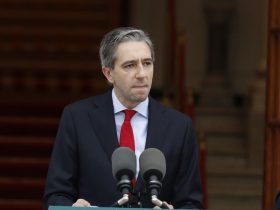The bosses of the world’s biggest social media companies have typically avoided personal repercussions, even when their platforms have faced scrutiny over their duties to their billions of users.
Social media companies including Facebook, X and TikTok have repeatedly come under fire from policymakers for failing to sufficiently tackle the spread of misinformation, but their founders have maintained their distance from content published by users on the platforms.
In a rare instance of personal accountability earlier this year, Mark Zuckerberg, who runs the parent company of Facebook, Instagram, and WhatsApp, apologised to families who said their children had been harmed by social media while testifying in a hearing at the United States Senate.
But the pursuit of Pavel Durov by French authorities, the co-founder of the Telegram messaging app, sets a new precedent.
Durov, 39, was born in Russia but became a French citizen in 2021.
He co-founded Telegram with his brother, Nikolai Durov, in 2013.
The app, which has nearly a billion users across the world, is known for its privacy, promising encrypted messaging and the protection of users’ messages from third party access.
For this reason, it is used by whistleblowers and others who are under threat, but French lawmakers allege the other side of the coin is that the app allows organised criminal activity.
After four days in French custody, Durov now faces preliminary charges over allegations that he allowed criminal activity on Telegram, including illicit transactions, images of child abuse and drug trafficking. He is also being investigated for allegedly refusing to share information and documents with investigators.
Representatives for Telegram have said the company abides by EU laws and its moderation is in line with industry standards.
The company added in a statement: “It is absurd to claim that a platform or its owner is responsible for abuse of that platform.”
Durov’s arrest had other tech bosses up in arms. Elon Musk, the owner of X, defended him, arguing that moderation is a “propaganda word for censorship”.
New regulations in the EU and UK aim to make tech companies more responsible for the potentially harmful content published on their platforms.
Apple, Meta, and Google’s parent company are also being investigated by the EU under separate laws designed to clamp down on the market power of the world’s tech giants.
If the companies are found guilty of non-compliance, they face fines of up to 10% of their global turnover.
Apple was ordered to pay a bigger-than-expected fine of €1.8bn (£1.4bn) earlier this year, after the company was accused by the commission of “abusing its dominant position in the market” for the distribution of music streaming apps to iOS users through its app store.
There will be concern in Silicon Valley that Durov’s arrest is the latest event in a turning tide against the freedom from intervention that social media companies have enjoyed since their inception.









